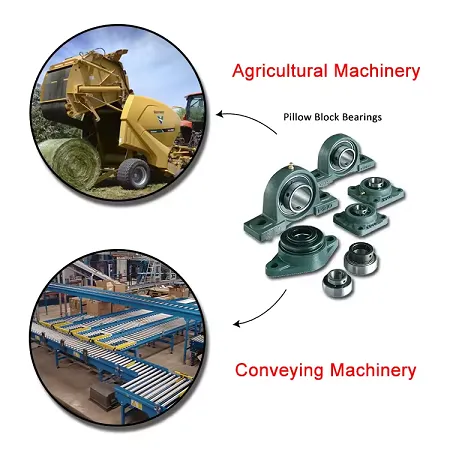Nov . 11, 2024 19:18 Back to list
custom ceramic bearings pdf
Custom Ceramic Bearings The Future of Precision Engineering
In the world of engineering, precision is paramount. As industries evolve and the demand for high-performance machinery rises, the need for advanced components becomes crucial. One such component that has gained tremendous popularity is the custom ceramic bearing. These bearings are engineered to meet specific requirements, offering exceptional performance, longevity, and reliability.
What are Ceramic Bearings?
Ceramic bearings are designed using ceramic materials for their rolling elements and, in some cases, their races. The primary types of ceramics used include silicon nitride, zirconium dioxide, and alumina, which are known for their lightweight and high strength properties. Unlike traditional steel bearings, ceramic bearings can operate in extreme temperatures, resist corrosion, and have lower friction coefficients.
Advantages of Custom Ceramic Bearings
1. High Performance Custom ceramic bearings are tailored for specific applications, which often lead to enhanced performance metrics. They can support higher speeds and operate under higher loads than standard bearings. This results in improved machinery efficiency and effectiveness across various industries, from aerospace to biomedical applications.
2. Durability and Longevity One of the standout features of ceramic bearings is their durability. They are less susceptible to wear and tear compared to their metal counterparts. The hardness of ceramic materials allows them to maintain their integrity under rigorous conditions, leading to extended service life and reduced maintenance costs.
3. Corrosion Resistance Ceramic materials are inherently resistant to corrosion and chemical degradation. This makes custom ceramic bearings an ideal choice for environments where exposure to moisture, chemicals, or corrosive substances is a concern, such as in marine or chemical processing applications.
4. Lightweight The low density of ceramic materials makes these bearings significantly lighter than steel bearings. This can enhance the performance of applications where weight reduction is a crucial factor, such as in automotive and aerospace engineering, ultimately contributing to fuel efficiency and overall performance.
5. Lower Friction Ceramic bearings benefit from lower friction coefficients, which translates to less energy loss during operation. This characteristic is particularly beneficial in applications where energy efficiency is a critical concern.
custom ceramic bearings pdf

Applications of Custom Ceramic Bearings
The versatility of custom ceramic bearings allows them to be implemented in a myriad of industries
- Aerospace In aviation, the need for lightweight, durable components is paramount. Custom ceramic bearings are used in aircraft engines, landing gear, and various other applications to reduce weight and improve reliability.
- Automotive The automotive industry utilizes ceramic bearings in high-performance engines, providing reduced friction and enhancing overall performance while contributing to fuel savings.
- Medical Devices In the biomedical field, custom ceramic bearings are used in surgical instruments and medical devices. Their resistance to corrosion and biological compatibility make them suitable for these sensitive applications.
- Industrial Machinery Industries that rely on heavy machinery benefit from custom ceramic bearings due to their ability to withstand harsh operating conditions while prolonging the lifespan of equipment.
The Future of Custom Ceramic Bearings
As technology continues to advance, the future of custom ceramic bearings looks promising. Ongoing research and development in material science are likely to lead to even more robust and specialized ceramic materials. Furthermore, the increasing focus on sustainable engineering practices is driving more businesses to consider ceramic bearings for their energy efficiency and reduced environmental impact.
Conclusion
In summary, custom ceramic bearings represent a significant advancement in engineering, offering tailored solutions that meet the rigorous demands of modern industries. With their exceptional performance, durability, and versatility, these bearings are set to play a crucial role in the future of precision engineering. As industries continue to strive for higher efficiency and sustainability, the adoption of custom ceramic bearings is expected to rise, paving the way for innovations that will shape the future of technology and manufacturing.
Latest news
-
25MM 2 BOLT UCFLX05-14 Flange bearing unit( oval)
NewsMar.07,2025
-
4 bolt UCF 200 series Pillow block bearings
NewsMar.07,2025
-
25MM 2 BOLT UCFLX05-14 Flange bearing unit( oval)
NewsMar.07,2025
-
UCF216-50 4-Bolt Flange Housing Square Bearing
NewsMar.07,2025
-
25MM 2 BOLT UCFLX05-14 Flange bearing unit( oval)
NewsMar.07,2025
-
spherical roller bearing material exporter
NewsMar.07,2025





